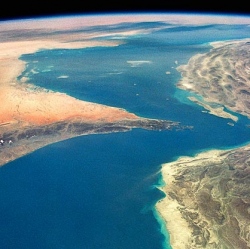
What is life? It’s a fuzzy concept without a single answer. Ask a biologist and they’ll likely hit you with a textbook definition of life as organized matter with genes-as diverse as a paramecium and an elephant.
Oliver Trapp, a professor of chemistry at the Ludwig Maximilian University of Munich in Germany, offers a different description. He says life is a “Self-sustainable reaction network,” in which organisms have the processes necessary to survive and adapt.
This is in line with the definition NASA uses when looking for extra-terrestrial life. Having a clear idea of what makes up life, and the conditions needed to sustain it, helps astronomers get a better picture of what to look for when searching for life on other planets.
Prerequisites to making life, based on what happened during early Earth, are materials for organic chemical reactions. Instead, life on Earth was created from volcanic particles and iron-rich meteorites.
“Understanding the origins of biology is one of the greatest unsolved scientific questions. It has important implications for understanding how common life may be beyond Earth and for understanding humanity’s place in the universe,” says Henderson Cleaves, a chemistry professor at Tokyo Institute of Technology and president of the International Society for the Study of the Origins of Life, who was not involved in the study.
Previous theories suggested that Earth’s volcanoes were the starting points. Early Earth may have had another important boost, too, in the form of chemical-rich meteors falling from the sky.
The natural minerals found on volcanoes would have helped support these chemical reactions. The authors suggest that as Earth’s atmosphere cooled down and became more reactive, it was probably easier for iron to speed along the conversion of carbon dioxide into oxygen-containing organic compounds.
While he says the work provides ample evidence for this theory of how life first emerged, he warns this simulation is dependent on the composition of the early atmosphere. Trapp says the findings are a start to uncover what makes up life.
As long as the right materials are present, the conditions to sustain living things may not be unique to Earth.
Inactive volcanoes have already been spotted in other places like Jupiter’s moon Io and Europa-a strong contender for extraterrestrial life since it holds a liquid water ocean underneath its icy surface.
“If a planet is cooling down too quickly and no longer able to convert carbon dioxide into organic compounds, this process would completely stop and essentially cause life to die.” Even if we do stumble on a planet with the optimal environment for life, whether we actually find aliens is another matter entirely.
